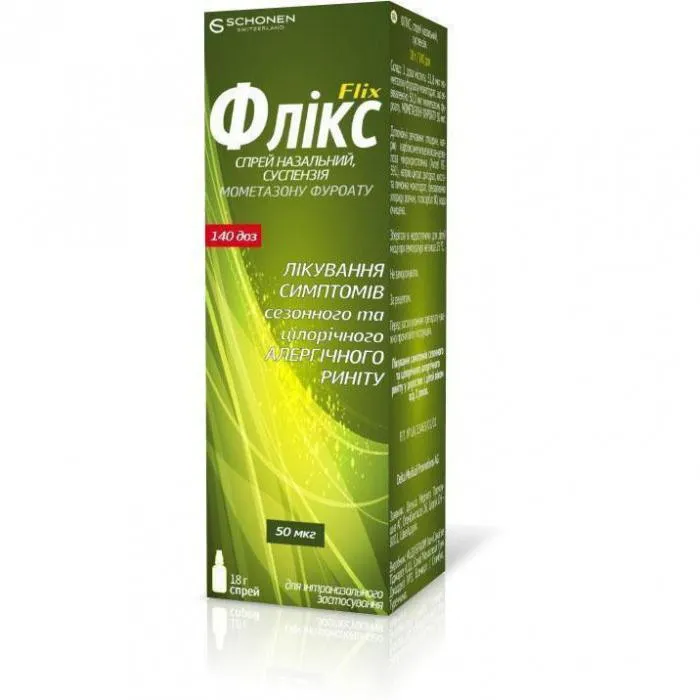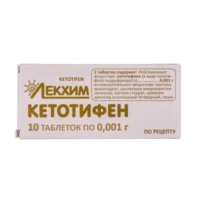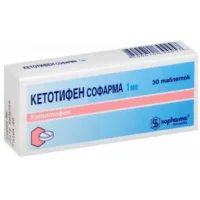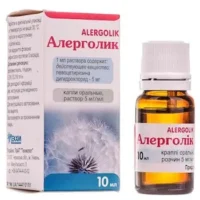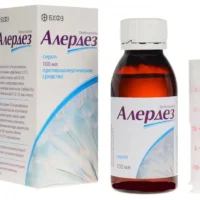Description
Flix (mometasone furoate) Nasal Spray Suspension 0.05% 18g Vial №1
Ingredients:
Each 100g contains mometasone furoate 0.05g in an aqueous suspension.
Mechanism of Action:
Mometasone furoate exerts its effects by inhibiting inflammatory responses in the nasal mucosa, reducing swelling and congestion. This action helps alleviate symptoms of allergic rhinitis and improves nasal airflow.
Pharmacological Properties:
Mometasone furoate, a corticosteroid, acts locally to reduce inflammation in the nasal passages without significant systemic absorption, minimizing the risk of systemic side effects.
Indications for Use:
Flix Nasal Spray is indicated for the treatment of nasal symptoms associated with allergic rhinitis. It helps relieve symptoms such as nasal congestion, runny nose, itching, and sneezing.
Contraindications:
Do not use Flix Nasal Spray if you are allergic to mometasone furoate or any other ingredients in the product. Avoid use in children under 2 years old without medical advice.
Side Effects:
Common side effects may include nasal irritation, nosebleeds, headache, and sneezing. If any severe side effects occur, discontinue use and consult a healthcare provider.
Usage Instructions:
The usual dose is 2 sprays in each nostril once daily. Shake well before each use. Prime the spray pump before the first use. Insert the nozzle into one nostril while closing the other nostril. Press the pump to release the spray and inhale gently. Repeat in the other nostril.
Benefits Compared to Analogues:
Compared to other intranasal corticosteroids, mometasone furoate has demonstrated similar efficacy in managing allergic rhinitis symptoms but with potentially fewer side effects. Clinical trials support its safety and effectiveness in both adults and children.
Suitable Patient Groups:
Flix Nasal Spray is suitable for use in both adults and children over 2 years old under medical supervision. It is well-tolerated and effective in managing allergic rhinitis symptoms across different age groups.
Storage Conditions and Shelf Life:
Store Flix Nasal Spray at room temperature away from direct sunlight and moisture. Check the expiration date on the packaging and do not use the product if expired.
Packaging Description:
Flix Nasal Spray is available in a 18g vial, designed for easy application and convenient use. The packaging provides clear instructions for proper administration.
Clinical Evidence and Proven Effectiveness:
Studies have shown that mometasone furoate nasal spray is effective in reducing nasal symptoms of allergic rhinitis. Research published in the Journal of Allergy and Clinical Immunology demonstrated the superior efficacy of mometasone furoate compared to placebo in improving nasal congestion and overall symptom relief.

